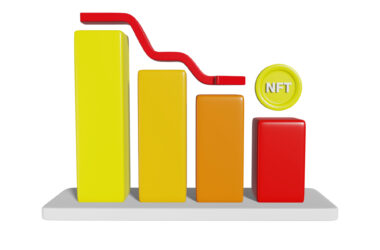In a landmark move, a consortium of well-known U.S. authors, including luminaries such as John Grisham, George R.R. Martin, Jonathan Franzen, and Jodi Picault, has mounted legal action against OpenAI. The suit revolves around the accusation of copyright infringement pertaining to the use of their literary work in training the AI model, ChatGPT.

The Authors Guild, which filed the lawsuit in Manhattan federal court on Tuesday, claims that OpenAI has extensively copied their members’ work without prior permission or any form of compensation. This material was then integrated into their “large language models” (LLMs). These advanced algorithms are designed to simulate human-like text responses when prompted by users.
Not The First Time..
This isn’t an isolated incident, as the lawsuit is among several recent legal endeavors targeting firms responsible for the development of popular generative AI tools, like large language models and image-generation tools. Earlier in July, two authors took OpenAI to court under similar allegations: using their books to train the firm’s chatbot without due authorization.
It appears that the world of image-generation hasn’t been spared either. In a notable case from February, Getty Images pursued legal action against Stability AI, accusing the company of unlawfully copying 12 million of Getty’s images to cultivate their training data.
The legal tangles continued when, in January, Stability AI, along with Midjourney and DeviantArt, faced a class action lawsuit regarding copyright issues linked to their AI image generators. Other tech giants, such as Microsoft, GitHub, and OpenAI, have also been embroiled in a proposed class-action lawsuit since November. This suit suggests the companies unscrupulously used licensed code to develop their code generators.
A Serious Matter – But Will They Win?
The Authors Guild minced no words in their filing, stating, “These algorithms are at the heart of Defendants’ massive commercial enterprise. And at the heart of these algorithms is systematic theft on a mass scale.”
The preceding wave of litigation by content creators against AI companies set a strong precedent. In July, a legal battle emerged when Sarah Silverman and two other authors accused both OpenAI and Meta of copyright breaches. Furthermore, Barry Diller intimated that he’s rallying publishers for a potential class action lawsuit.
Terrence Hart, the general counsel of the Association of American Publishers, reflected on this burgeoning legal challenge against AI developers. “We concur that the unsanctioned use of literary works by AI developers summons grave legal questions that can’t merely be waved away with claims of ‘innovation’. Questions arise: Innovative for whom? At whose expense? And under which regulations? We will be watching the outcome of this lawsuit with bated breath.”
Impact On Business And Investors
These copyright lawsuits are raising questions about how AI models function, whether they infringe on copyrighted works, and whether model creators need consent for using copyrighted data. The article points out that the challenge in copyright cases involving LLMs is obtaining permission from numerous copyright owners and determining the relief for copyright owners who challenge the use of their works.
Businesses are advised to exercise caution when using AI models built on third-party datasets and understand the origin and legal status of the data they use. The article also highlights the importance of clear guidance and governance when using AI models to avoid legal issues, including copyright infringement.
Privacy A Concern Too
Additionally, OpenAI is under investigation by the Federal Trade Commission (FTC) regarding data privacy, security, and consumer risks associated with its generative AI technology. The FTC is exploring potential harms, including IP copyright issues and harm to competition.
In summary, the article emphasizes the legal challenges and scrutiny that OpenAI and businesses using generative AI models are facing due to copyright issues and the need for proper governance and understanding of data sources in AI development.
But it also means that investors will need to be cautious. In other words: ongoing lawsuits may have an impact on companies developing AI products and services. As an investor it is worth staying ahead of these lawsuits, and trying to predict how certain stocks will be affected should a lawsuit succeed.
WeInvests is a financial portal-based research agency. We do our utmost best to offer reliable and unbiased information about crypto, finance, trading and stocks. However, we do not offer financial advice and users should always carry out their own research.
Read More













